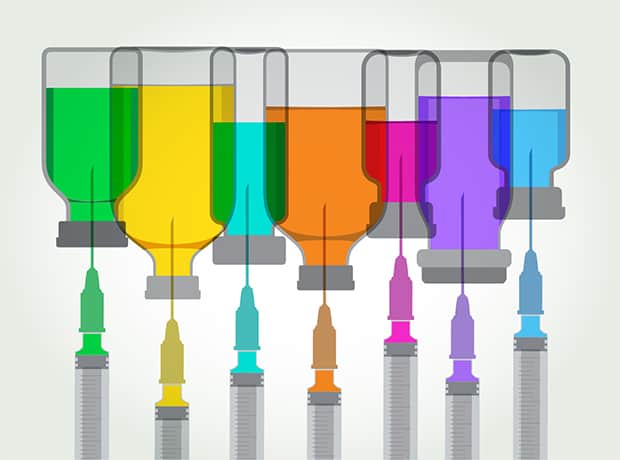In late April, just ahead of the WHO’s World Immunisation Week, Malawi made headlines when it announced that it had launched an anti-malaria vaccination programme. In a pilot roll-out that also includes Ghana and Kenya, the country will use GSK’s Mosquirix (RTS,S) to target a strain of malarial bacteria that is common in sub-Saharan Africa. The programme aims to reach about 360,000 children across the three countries every year – a number that, according to the WHO’s models, should save 1,800 lives a year.
But this very welcome news – a milestone in the long fight against malaria – also highlights two less welcome trends. The first is that, as Malawi rolls out a new vaccine that even its developers admit is likely to be only 40% effective, several other countries are struggling to contain a growing anti-vaccination movement. With the proportion of children receiving basic vaccines slipping below the 90%-95% needed to maintain herd immunity in many countries, diseases such as the measles are making a comeback.
In one depressing way, it is a marker of how successful vaccines have been. By preventing childhood deaths, they have allowed the fear of vaccine side effects to become greater than the fear of disease for some parents. But that intrinsic paradox makes it all the harder to reverse the trend. Government warnings, accompanied by alarming statistics, are dismissed as pro-pharma propaganda by campaigners. More draconian measures, such as barring unvaccinated children from school, risk an even greater backlash.
The other trend concerns GSK’s desire to step back from this project. The UK pharma company has already invested 30 years and around $1 billion into the development of RTS,S and will be giving the vaccine away for free for the pilot programme. But, while its malaria research has brought new knowledge and some welcome good publicity, GSK’s chief executive Emma Walmsley has made it very clear that her goal is to focus GSK on more commercially viable research. She wants non-profit organisations to take the strain on the anti-malaria research from now on.
Vaccines themselves are not necessarily non-commercial, of course. In the quarter ending March 31st 2019, GSK reported a 23% jump in its vaccine sales to £1.5 billion, compared with just a 4% increase in its pharmaceutical sales to £4.2 billion. But vaccines for diseases that mainly affect Africa are a different proposition. The usual commercial proposition for vaccines is that they are low cost, high volume – but that model does not work if low cost is no cost, with extra distribution expenses thrown in. And if it is not profitable to tackle African diseases, then where will the research funding come from? After all, GSK is already slimming down its vaccine R&D programme to focus on more profitable areas.
More broadly, while Ms Walmsley’s predecessor, Sir Andrew Witty, was convinced that investment in Africa would pay dividends in the long term, the current chief executive seems less willing to make that gamble – at least under the company’s current model. Last year she announced plans to restructure operations in 29 African countries, leading to job cuts across the continent. This year came news that GSK’s plant in Nigeria will shut in 2021, with the company’s drug manufacturing to be done under contract in future. GSK says that access to medicines in Africa will not be affected, but that remains to be proven.






